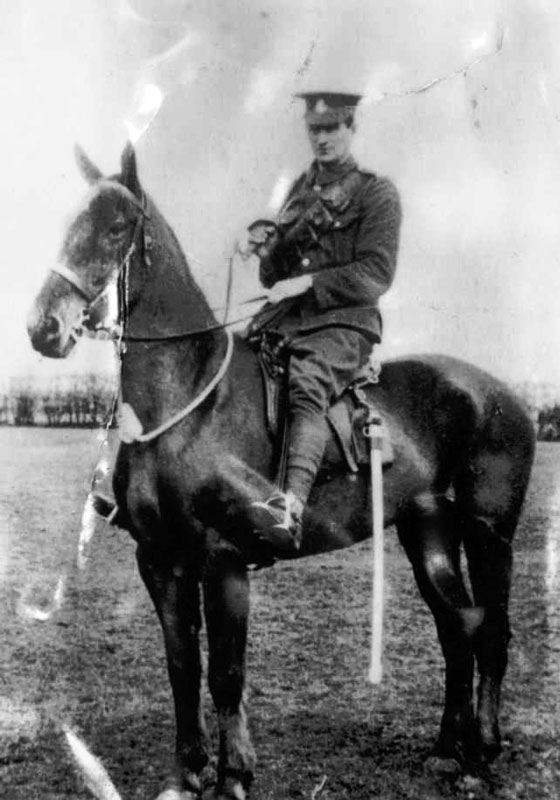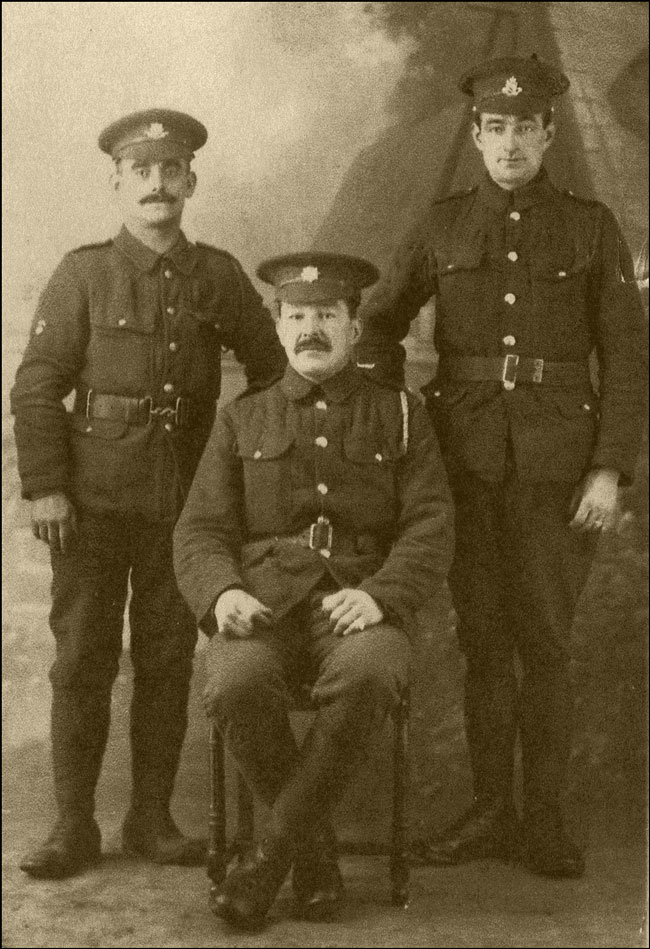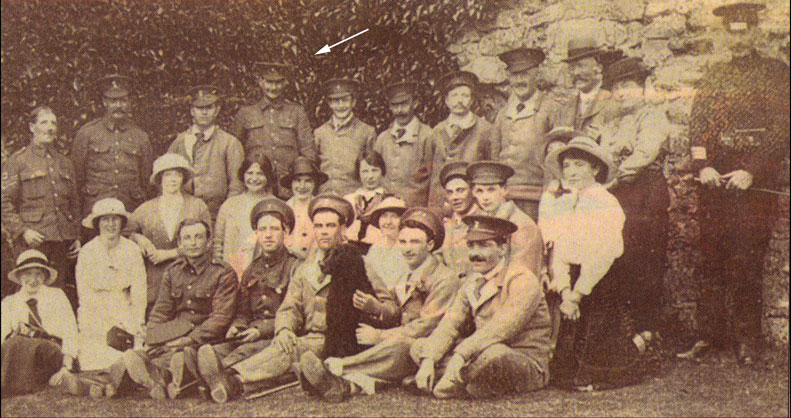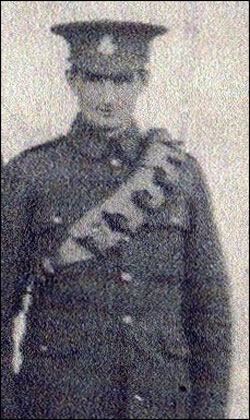Private Samuel Black

Samuel Black was born on 21 May 1885 at Union Street, Lurgan, County Armagh, the sixth of fourteen children of carter (later car owner and driver) Robert Black and his wife Ellen (nee McBride). By the time of the 1911 Census he was living at Hill Street, Lurgan, with his parents and four sisters and working as a car driver. On 14 December 1912 he married Annie Jones at Lurgan Church of Ireland Parish Church. The couple had three children over the next decade.
Black enlisted in the North Irish Horse on 1 September 1914 (No.1095 – later Corps of Hussars No.71231). He embarked for France on 28 April 1915 with a small group of reinforcements for A and C Squadrons – Black was probably posted to the latter. He remained with the regiment throughout the war, during which he had a number of brushes with authority.
In July 1917 Black was admitted to the 4th Stationary Hospital at St Omer for dental treatment. The following month arrangements began for the disbandment of the 2nd North Irish Horse Regiment, which included C Squadron. Most of the men were transferred to the infantry but Black remained with the North Irish Horse, joining the 1st Regiment.
On 25 February 1919 Black was demobilised and transferred to Class Z, Army Reserve. He died of tuberculosis at Lurgan on 20 June 1929.
Samuel Black's two younger brothers, Robert and Joseph, also served in the war. Robert served with the 2nd Battalion, Royal Irish Rifles. Wounded at Hooge on 28 August 1915, he was discharged due to the wound and heart disease brought on by active service on 20 February 1916. He died at Old Portadown Road on 28 December 1916. At the time Robert was not officially identified as a casualty of the war. Following a submission to the Commonwealth War Graves Commission, through the In From the Cold Project, on 25 August 2020 he was added to the the Commission's commemoration roll. Joseph served with the Army Service Corps (Motor Transport) from mid-1917. Discharged on 13 March 1918 as no longer fit for service due to malaria and tuberculosis, he died on 14 February 1922.
During the war a poem was written extolling the virtues of the servicemen of Hill Street, Lurgan, including the three Black brothers and John Gracey, another North irish Horseman .
The Hill Street Boys
Here’s to the men one score and ten
Who at the corner once did gather
They mustered there in rain or fair
They never seemed to mind the weather
They talked of beans and football teams
Of checks and tapes and bordered cotton
Of tenters tricks and picking sticks
And yarn which they described as rotten
These boys so gay are all away
We miss their cheerful smiling faces
To Kitchener’s crush they all did rush
And in the ranks took up their places
Their faces were all wreathed in smiles
That day as they walked to the station
Content to know their wives and kids
Would be well cared for by the nation
There was big ‘Bob Lunn’ and ‘Donaldson’
Who could make boots with any other
There was the ‘Bliggard’ boy his mother’s joy
Who never could keep out of bother
There was ‘Bobby Gordon’ solid man
Old ‘Tom Black’ and ‘Tommy Campbell’
When these men brave cross oer the wave
The Germans in their boots will tremble
There’s ‘Houston’s son’ so full of fun
Who like a man stood to attention
There’s ‘Johnny Graham’ and ‘Osbourne’ lame
Who fought the Boers and got a pension
There’s ‘McNally Tam’ the Gas House man
The ‘Rooster’ too and ‘Dooby Connor’
With heart and hand they’ll lead the band
At hurling down the German banner
There’s ‘McIllwaine’ so cool and tame
Who never seemed to get excited
There’s ‘Lyttle’ tall and jolly ‘Val’
To sing a song he was delighted
There’s ‘Wilson Hanna’, ‘Gracey’ too
The ‘Buffer Lad’ and big ‘Bob Walker’
It’s men like these Old England needs
To end the German’s cruel slaughter
There’s ‘James’ and ‘Sam’, ‘Moe’ and ‘Tam’
For fine chaps there’s no disputing
For heart and hand for Hill Street Band
These brothers spent much time in fluting
There’s ‘Harry Quail’ as hard as nails
Who for Glenavon oft did battle
And Sparks so bright who took delight
In causing forwards teeth to rattle
There's the 'Greagor' bard and his farmyard
A place where we had much enjoyment
There's the Watsons', 'Red George' and 'Fred'
Who never were, out of employment
There's Robert Black's 'Three Strapping Sons'
Who looked so well upon the hansom
There's 'Ginuef' and his chum 'McGrath'
For work, were worth, their weight in ransom
I’ve nearly done, but there’s still one
Good chap with whom we’re all acquainted
In days of yore he fought the Boers
And with his fists their eyes he painted
‘Jimmy Hagan’ is his name
He used to fish for eels and tenches
May he escape the shot and shell
As he lies there amidst the trenches.
Success to all both short and tall
When in the fray may luck attend them
With sword and gun they'll crush the Hun
Their cause is just, God will defend them
Their county's call they answered all
They never thought of gain or losses
And we hope ere long they will return
And on their breasts Victoria Crosses

Private Black standing (right) above..

The picture above, from the Lurgan Mail, shows soldiers convalescing from their injuries at Waringfield in Moira. Samuel Black is indicated with the arrow.

Images and some of the information above kindly provided by Adele Cosgrove, granddaughter of Samuel Black.
